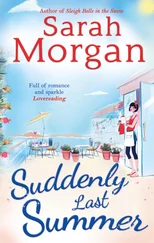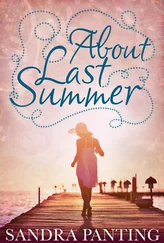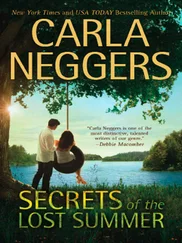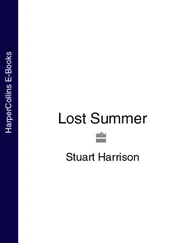The bird suddenly took wing.
The beauty of his flight was breathtaking, it almost brought tears to my eyes. Wings flapping, he soared up into the mist, gray merging with gray, white underbelly and ruff looping upward, beak thrust into the sky. His wings — angled, long, graceful, tapered — went suddenly motionless. He swooped low in a descending arc, wings wide, and then flapped them again effortlessly, nudging himself higher and higher, until at last he was lost completely in the mist. We waited. The mist shifted soundlessly around us, the ocean whispered in against the shore.
“He’s gone,” David said.
“No, wait,” Sandy said.
I don’t know how long we waited. We stood almost shoulder to shoulder, gazing up at the sky, listening. The only sound was the incessant stroke of ocean against shore. And then, suddenly, the bird broke through the mist, his wings wide, emerging from the grayness as if a piece of it had suddenly broken away and was falling swiftly earthward, swooping lower and lower, more clearly defined now, the white startlingly explosive against the background of gray, the yellow of his beak and eyes, his legs tucked back against his body, closer and closer to the ground, the wings suddenly rising in eaglelike majesty to fan the air and brake his fall as he dropped silently to the sand at our feet.
“Feed him, quick,” Sandy whispered.
David threw him a piece of bread. The bird gobbled it down at once.
“Now head up the beach. Fast! Run!”
We all began running, Sandy in the lead. She headed into the mist with long steady strides, was swallowed by it, disappeared into it, emerged again on a clear patch of beach, and was once again overwhelmed by the clinging tendrils of fog. I stopped and looked behind me. The gull was still sitting.
“Come on, bird!” I shouted, and on signal he ran several steps forward with his head thrust low, taking flight again and following us into the fog. Breathless, we clung together, waiting. He appeared above our heads at last, wings wide, circling, swooping, and then dropping to the beach at our feet. David immediately gave him an apple core.
“He knows,” Sandy said.
We ran back and forth along the beach until we were exhausted. Each time the bird took off into the air and followed us, and then descended again, and waited for his reward. The real test came when he was joined by a flock of gulls that came in suddenly off the fog-swathed water, shrieking and cawing in anticipation of food. The bird joined the flock, swooping and diving and circling and darting, raising his voice with theirs, and then coming to rest on the beach when the other birds did. But when we fed none of them, they all took wing again, except our bird, who waited patiently until David pulled another scrap from the bag of garbage.
Sandy grinned and said, “He’s trained.” Walking to the bird, she reached out her hand to pat him on the head — and he bit her.
She yanked back her hand. A look of startled rage crossed her face. “You fucking idiot!” she shrieked, and reached for him again, lips skinned back, teeth bared as if to return the bite. Something slid into her eyes. Intelligence or guile, cunning or concern, it jarred her to an immediate stop. Trembling, she forced a smile onto her mouth and airily said, “It’s only a scratch, men.”
“Is the skin broken?” David asked.
“No.”
“He was eating,” I said, apologizing for the bird.
“He almost ate me, ” Sandy said, and laughed. She turned to the gull. Without a trace of her earlier flaring anger, she cheerfully said, “Come on, bird.”
We began walking up the beach. Behind us, the gull took flight. He followed us all the way to Sandy’s house. When we went inside for lunch, he sat on the deck and waited for us.
The next day, he was gone.
Sandy related the disappearance to me on the telephone, and I immediately called for David and we walked together up the beach to Sandy’s house, speculating on what might have happened. She had reported that the night before, unwilling to take any chances, she had once again put the leash on the bird and tethered him to the deck railing. This morning, when she’d gone outside to feed him, the leash was still attached to its stanchion, but the gull had somehow managed to escape by squeezing his neck and his head through the collar. I thought this was an amazing stunt for such a stupid bird, but David said I wasn’t considering the fact that the bird had once tasted freedom and probably couldn’t bear even temporary bondage any longer. He then told the story of a chain-gang convict who’d freed himself from his manacles by chopping off his right hand. He’d died fifteen feet from where his severed hand lay in the dust, but at least he’d died free. I immediately conjured a vision of a decapitated gull taking wing from Sandy’s porch, only to crash into the nearby bushes, his head and neck still circled by the collar fastened to the leash and the railing. When we got to her house, Sandy seemed calm enough, considering she’d lost the bird after all the time and energy put into his training. We sat around disconsolately for a while, trying to figure out what to do, and finally decided to conduct an extensive search.
We looked everywhere for that damn bird.
We started in the bushes nearest the house because I was still entertaining the notion of a headless bird crash-diving immediately after takeoff, but the gull was nowhere in the vicinity, nor were there any traces of feathers anywhere. We lengthened our radius, swinging out from the house in a widening circle that took us onto the beach at one end and close to the forest on the other. Sandy gave up the search before either David or I were weary. Determined to find the bird and surprise her, we continued looking long into the afternoon, luring flocks of gulls down to the beach with our bag of garbage, hoping to recognize our bird among them.
By sunset, we were on the edge of the forest.
“Do you think he may have wandered in there?” David asked.
“I doubt it.”
“Let’s try it.”
“I don’t think he’s in there,” I said. I was suddenly afraid of the forest again. I knew it was harmless, but something urged me not to enter it, something warned me that whatever horrors it had earlier contained were still in there, ready now to spring full-blown from nightmare into reality.
“Come on,” David said, and began walking toward the black and twisted pines.
The sun was low on the horizon, orange, silhouetting the charred trees, recreating that night so long ago when flames had leapt from branch to branch and the islanders had trembled in fright on the distant shore. The sun drove fire directly into the eye, overpowering the retina, blinding unless a gnarled limb or twisted trunk intercepted its rays, shooting sparks from behind black contorted trees, now and again blocked by large gray boulders that cast long shadows on the forest floor, translating, by collision, pure light into something as dark and as deep as an open grave. There were nameless horrors in this forest, I felt them ooze damp and white from every pore of my body, heard them shriek inside my head with all the crackling terror of a flying spark, saw them materialize in bursting sunfans, a woman in white nylon, her face melting. There was no wind. I followed close behind David, longing for a reassuring word from him. But he was as silent as the forest around us, and I suspected he was as frightened as I.
The black boulder lay just ahead. I recognized it instantly as the one behind which Sandy and I had sat the day we filled out the computer questionnaire. Huge and round, it rose from among the smaller gray rocks like an ancient crypt.
The bird was lying behind the boulder.
He was still wearing the red collar and leash. There was red everywhere. Red in his white wing feathers and ruff, red on his broken yellow beak and crushed skull, red splattered onto the black boulder, red on the forest floor, red that shrieked against the violent orange of the dying sun, the forest was red, the world was red with the blood of the gull.
Читать дальше
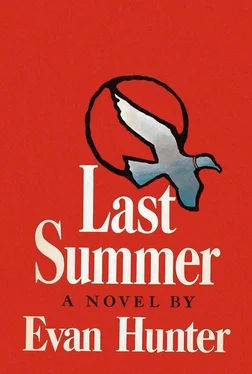
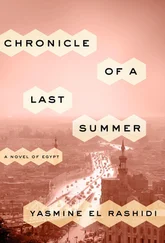
![Маргарет Миллар - Rose's Last Summer [= The Lively Corpse]](/books/384369/margaret-millar-rose-s-last-summer-the-lively-c-thumb.webp)

